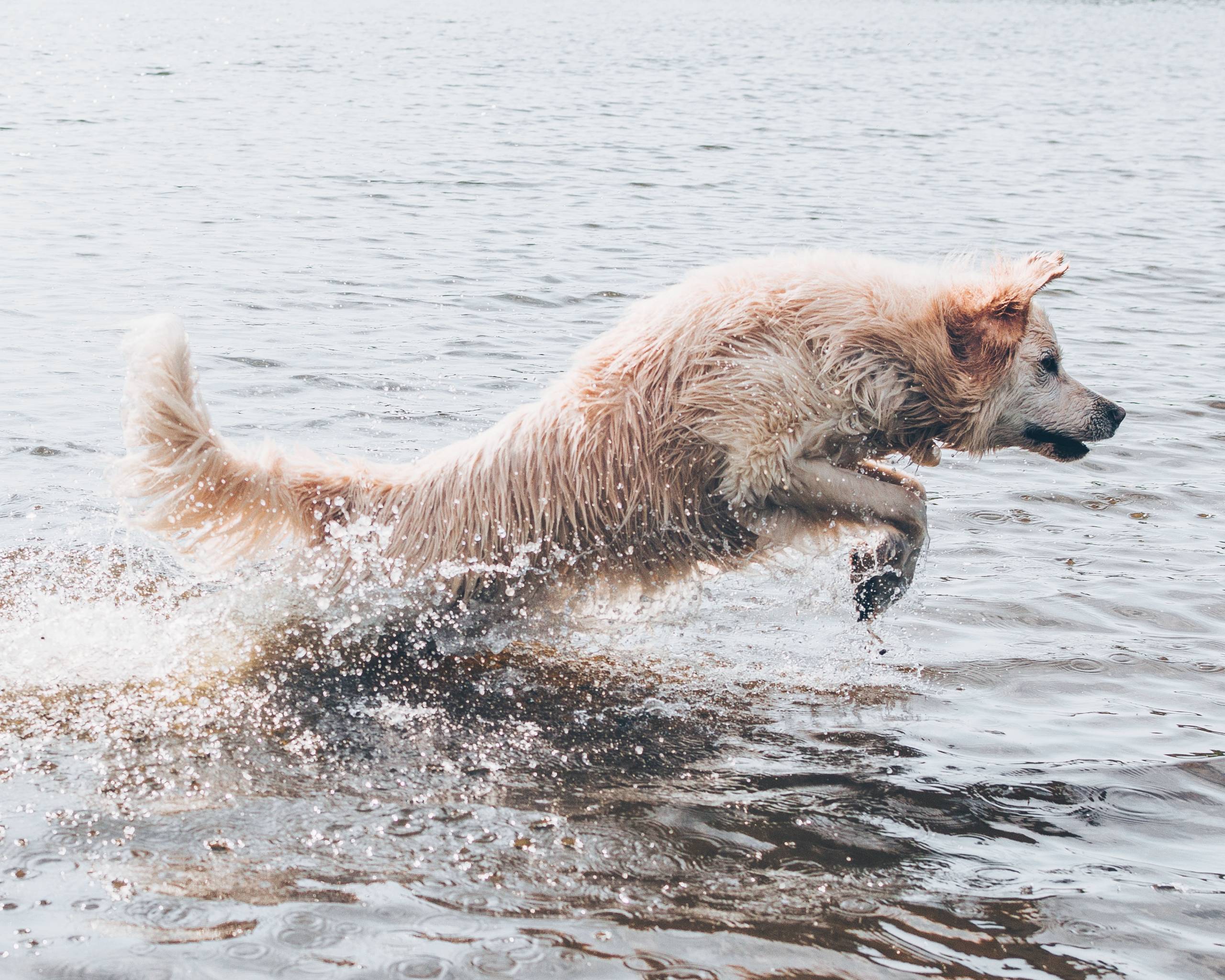Why Do Dogs Need Anal Glands Expressed?
Post Date:
December 10, 2024
(Date Last Modified: November 13, 2025)
Anal (anal sac) glands are small paired structures beside the anus that produce a distinctive secretion used in canine communication. Understanding their anatomy, common problems, and proper care helps owners and clinicians decide when expression or treatment is needed.
Anatomy of Canine Anal Glands
Anal sacs are paired pouches positioned at approximately the 4 o’clock and 8 o’clock positions around the anus on a dog, opening into short ducts at the mucocutaneous junction near the anal orifice.[1]
Each sac typically contains a small volume of oily, sebaceous-smelling secretion; measured volumes for normal sacs are reported in the low tenths of a milliliter, commonly on the order of about 0.2 to 0.5 mL per sac in adult dogs.[2]
The ducts that drain the sacs are narrow, generally on the order of 1 to 2 mm in diameter, and are surrounded by the fibers of the external anal sphincter and associated perianal musculature that normally help expel secretions during defecation.[1]
Normal Function and Purpose
Anal sac secretions serve primarily as scent markers that convey individual identity and may play a role in territorial and social communication among dogs; the glands are one component of a broader canine olfactory signaling system.
Dogs possess a highly developed sense of smell with estimates of olfactory receptor counts in the mammalian canine nose on the order of about 300 million receptors, which helps explain the effectiveness of anal sac odors for recognition and communication.[3]
In normal physiology the sacs tend to express small amounts of fluid around defecation, aided by fecal bulk and sphincter contraction rather than serving as primary scent glands for long-term storage; their secretions differ chemically from apocrine or sebaceous glands elsewhere in the skin.
Common Problems (Impaction, Infection, Abscess)
Impaction refers to retention of secretions with thickened material that the duct cannot clear; this can progress to secondary infection when bacteria proliferate in the stagnant contents and, if untreated, can form an abscess that may rupture through the skin.
Typical clinical signs include scooting, excessive perianal licking or biting, a visible perianal swelling, and malodorous discharge; owners commonly notice activity changes before a visible lesion develops.
Abscesses may form a localized fluctuating mass that can be 1 to 3 cm or larger depending on the stage, and they frequently cause pain on palpation and can produce systemic signs if infection becomes severe.[4]
Clinical Indications for Expression
Expression is indicated when a dog shows signs suggesting retained or infected sacs such as repeated scooting, persistent licking, a firm or swollen sac on palpation, malodorous discharge, or recurrent perianal dermatitis; asymptomatic dogs do not routinely require scheduled expression unless recommended for individual management.
Veterinary assessment normally begins with a visual and careful digital rectal and perianal palpation; if infection is suspected, culture of expressed material or cytology may guide antibiotic selection in addition to physical findings.[1]
Dogs prone to impaction are sometimes scheduled for professional manual expression at intervals of roughly every 1 to 3 months, tailored to clinical response and stool consistency rather than on a fixed universal timetable.[4]
Manual Expression Techniques and Settings
Veterinary technicians and veterinarians perform manual expression in a clinical setting when infection, pain, or difficult anatomy exist; owner-performed expression is appropriate only when the dog is comfortable, the owner has been trained, and no signs of infection or severe swelling are present.
Basic steps for external manual expression from a trained person include wearing gloves, applying a thin lubricant, placing a finger and thumb just lateral to the anus, and applying gentle, steady pressure toward the duct opening until material is expressed; most compressions last only a few seconds per sac when successful.[2]
Hygiene precautions include immediate cleansing of the area with an appropriate antiseptic and disposal of contaminated materials; avoid home expression when the sac is obviously inflamed, painful, or if the dog resists strongly, because incomplete or traumatic attempts can worsen infection.
| Sign | Typical finding | Suggested urgency |
|---|---|---|
| Scooting | Frequent dragging of perineum | Routine evaluation |
| Perianal licking | Redness, mild discharge | Prompt check |
| Swelling | Palpable firm/fluctuant mass | Urgent same-day assessment |
| Pain/fever | Reluctance to sit; systemic signs | Emergency/antibiotics |
Medical Treatments Beyond Expression
When bacterial infection is present, systemic antibiotics are commonly prescribed and typical courses range from about 7 to 14 days depending on clinical severity and culture results; short courses may be inadequate for established abscesses or deep infections.[1]
Abscess management often requires incision and drainage under sedation or anesthesia, removal of necrotic tissue, and appropriate flushing; placement of a drain or repeated lavage may be needed when cavity size is significant or contamination is heavy.[4]
Surgical excision of chronically diseased anal sacs (anal sacculectomy) is an option for recurrent, refractory problems; the procedure carries risks and is generally considered when conservative measures fail or repeated infections occur despite medical therapy.[2]
Prevention and Long-Term Management
Maintaining a stool consistency that provides sufficient bulk to help natural sac emptying is a central preventive measure; many clinicians recommend dietary fiber adjustments rather than routine forced expression for prevention alone.
- Increase soluble fiber gradually (examples and dosing vary by dog size and product) under veterinary guidance to achieve formed stools.
- Maintain healthy body weight and regular activity to support normal defecation mechanics.
- Schedule periodic checks with a veterinarian for dogs with prior problems; professional expression or medical review may be timed to clinical signs rather than fixed intervals.
Owners should track frequency of recurrence; if a dog requires expression more than several times per year despite dietary and hygiene measures, further diagnostic workup may be warranted to rule out underlying causes such as allergies or chronic diarrhea contributing to dysfunction.[2]
Risks, Complications, and Mistakes to Avoid
Improper home expression can cause iatrogenic trauma to the duct or mucosa, introduce bacteria, and increase the chance of infection; heavy-handed or repeated forceful attempts are associated with higher complication rates observed in practice reports.
Incomplete expression may leave residual material that encourages rapid recurrence, and delayed veterinary evaluation of an abscess can permit extension of infection into surrounding tissues or cause systemic illness.
When surgical excision is performed, potential complications include wound infection, seroma formation, and in rare cases disruption of local innervation that could contribute to fecal incontinence; these risks are discussed with owners prior to elective sacculectomy.[2]
Special Populations and Predisposing Factors
Certain small and short-muzzled breeds are overrepresented among dogs with anal sac problems due to conformational and fecal-bulk differences, and dogs with chronic dermatologic or allergic conditions more commonly develop recurrent sac disease as part of their overall skin inflammation profile.[1]
Age-related patterns show that while any age can be affected, recurrent or chronic problems are often identified in adult and middle-aged dogs that have persistent contributing factors such as obesity or recurrent gastrointestinal disease.
Dogs with chronic diarrhea or frequent soft stools are at higher risk because poor stool bulk reduces natural sac emptying; managing underlying gastrointestinal disease is therefore an important aspect of long-term prevention.[2]






